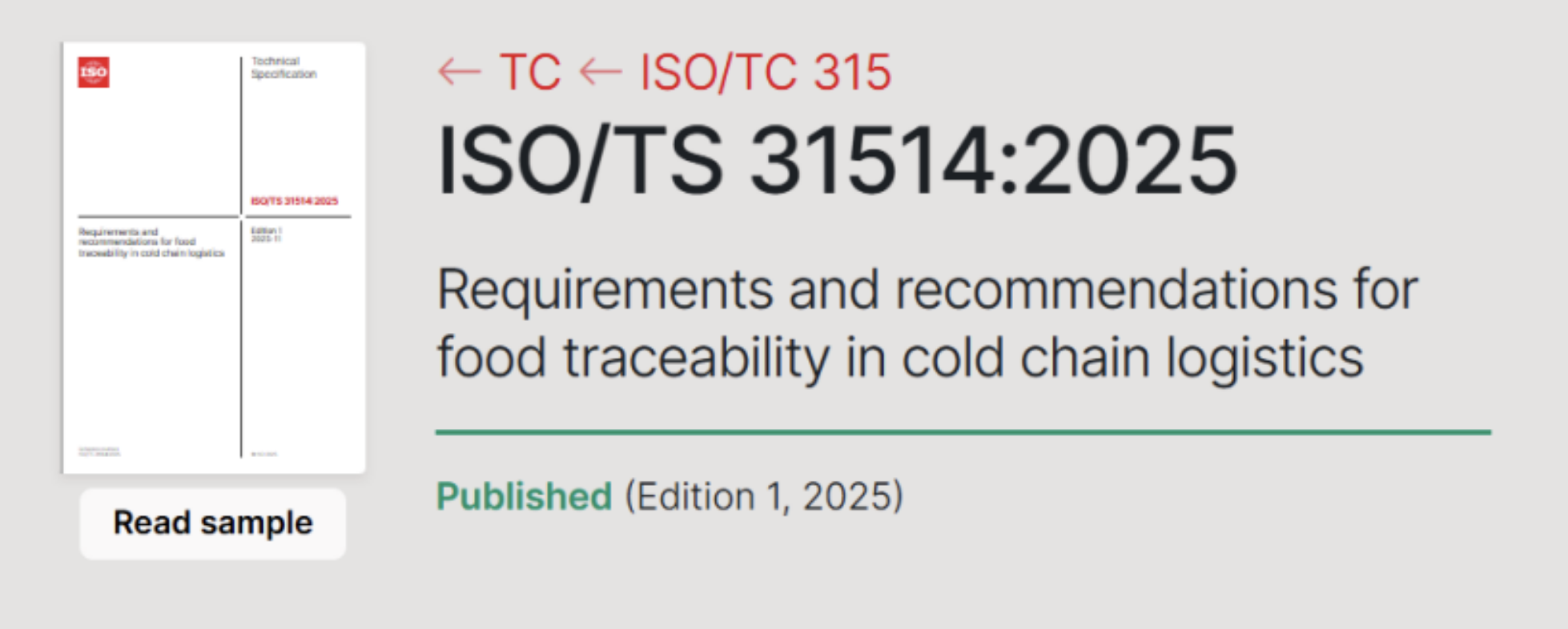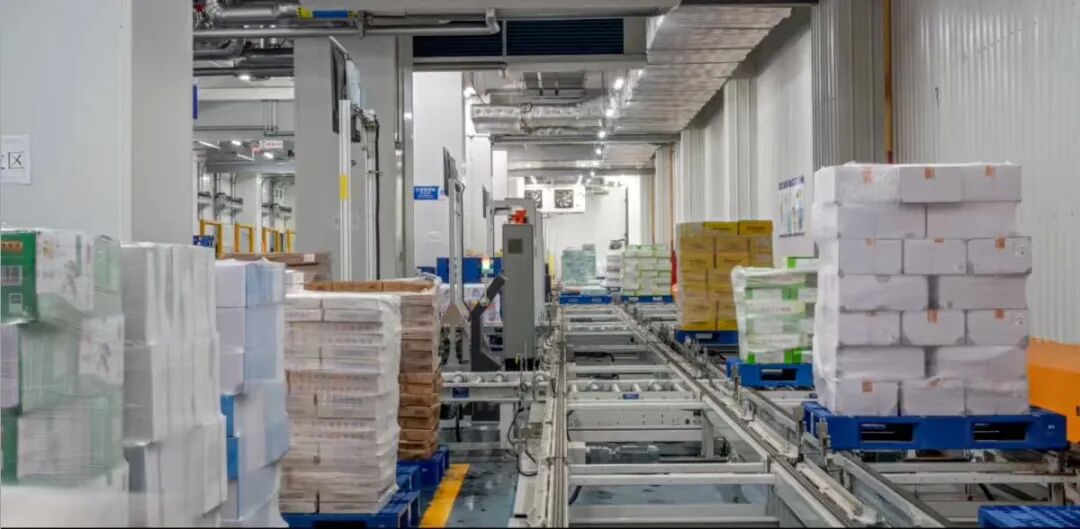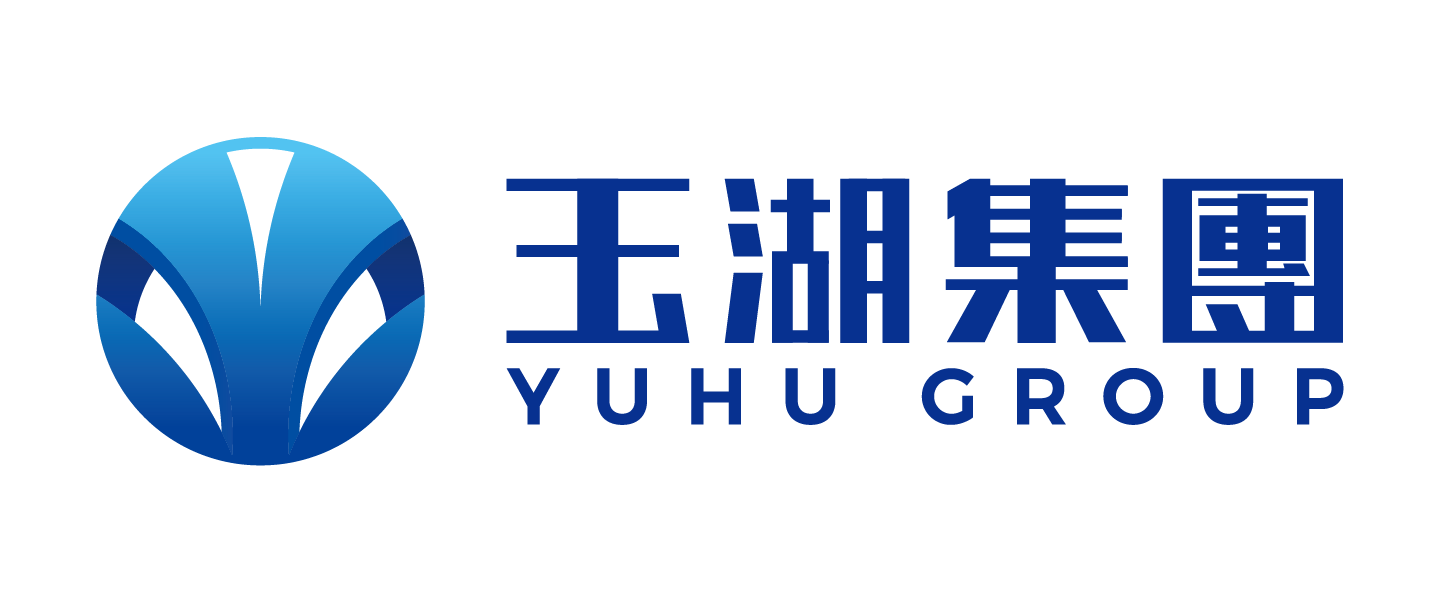On November 4, 2025, the International Organization for Standardization (ISO) officially published ISO/TS 31514:2025, “Requirements and Recommendations for Food Traceability in Cold Chain Logistics.” This international standard was led and drafted by Yuhu Cold Chain, with Holly Huang, Executive Director of Yuhu Group Hong Kong, serving as project leader. This is the third international standard drafted and published by Yuhu Cold Chain within two years, marking the ongoing transformation of China’s cold chain expertise into global standards and continuously bridging gaps in specialized areas of international cold chain logistics.

For a long time, the lack of unified traceability standards has been a core constraint on the development of global cold chain food trade. For example, in cross-border circulation of cold chain food, inconsistent temperature control record formats and differences in traceability data across countries result in incomplete traceability chains and challenges in quality assurance. At the same time, small and medium-sized cold chain enterprises face high costs in building traceability systems due to the absence of unified technical guidelines. To address these issues, ISO/TC 315 (ISO Technical Committee on Cold Chain Logistics) initiated a special project for standard development.
As a key contributor to international standardization, Yuhu Cold Chain, commissioned by the China Federation of Logistics & Purchasing (CFLP) Cold Chain Committee, led the effort to upgrade the national standard “Management Requirement for Traceability in Food Cold Chain Logistics” to an international standard. In July 2023, the project “Requirements and Recommendations for Food Traceability in Cold Chain Logistics” was officially approved, and the WG6 Traceability Working Group was established. Liu Fei, Executive Deputy Secretary-General of the CFLP Cold Chain Committee, served as convener, while Holly Huang, Executive Director of Yuhu Group Hong Kong, took on the role of project leader, overseeing the entire standard development process. The working group consisted of industry experts from Singapore, Japan, France, Malaysia, South Korea, the United Kingdom, India, Uganda, and other countries. After 27 months of collaborative work, the standard was completed and published in November 2025.
The newly released ISO/TS 31514:2025 “Requirements and Recommendations for Food Traceability in Cold Chain Logistics” specifies the requirements and recommendations for establishing a traceability system for food in cold chain logistics, enabling integrated functions such as collecting, managing, and applying traceability information. The standard is applicable to full-process management supporting food traceability, especially for critical cold chain logistics steps including transportation, warehousing, and loading/unloading, up to final delivery to end consumers, providing technical support for full-chain traceability.
In recent years, Yuhu Cold Chain has achieved significant breakthroughs in international standardization:
- November 2024: Led the drafting and release of ISO 31511:2024 “Requirements for Contactless Delivery Services in Cold Chain Logistics,” the first international standard in China’s cold chain logistics sector, which was featured on CCTV News for its global guidance on safe cold chain delivery in the post-pandemic era.
- December 2024: Made substantial contributions to ISO 31512:2024 “Cold Chain Logistics Services in B2B Sector – Requirements and Guidelines for Storage and Transport,” providing integrated “storage-transport” management cases from Chinese B2B cold chain enterprises.
- November 2025: Led the drafting and release of ISO/TS 31514:2025 “Requirements and Recommendations for Food Traceability in Cold Chain Logistics,” filling the global gap in full-chain traceability standards for cold chain food.

Together, these three standards form an international standards matrix covering the core scenarios of “contactless delivery, B2B services, and food traceability.”
As both a standard-setter and practitioner, Yuhu Cold Chain (Guangzhou) Trading Center’s fully automated high-bay warehouse demonstrates the effective localization and implementation of international standards. By combining “localization of international standards” with “scenario-based deployment across national industrial parks,” Yuhu Cold Chain has overcome the “last mile” challenge in standards application. In Guangzhou, Chengdu, and Wuhan trading trading centres, fully digitalized cold storage facilities have been established that meet the highest international standards: the hardware is capable of covering a full temperature range from ambient to -60°C, meeting the requirements for high-end food temperature control across all categories. On the software side, Yuhu Cold Chain leverages digital technologies to achieve real-time temperature monitoring, recording, and traceability throughout every stage of the cold chain. By integrating IoT technology, the system can immediately respond to any temperature fluctuations, effectively preventing cold chain interruptions, cargo loss, and food quality issues, and ensuring that traceability data remains authentic and verifiable. Owing to its high-standard digital cold storage construction and management, Yuhu Cold Chain’s Guangzhou Trading Centre has been recognized as South China’s first “Five-Star Digital Warehouse.”
Looking ahead, Yuhu Cold Chain will continue to build on its expertise in cold chain technology and trading centre operations, using its established international standards matrix to deepen the practical implementation of standards in real-world scenarios and further refine replicable Chinese solutions for the global cold chain industry. At the same time, leveraging its global collaboration experience, Yuhu Cold Chain will actively promote the development and improvement of international standards in more specialized fields, helping the global cold chain sector advance toward a safer and more efficient future, and empowering the international cold chain ecosystem with Yuhu’s solutions and Chinese wisdom.


